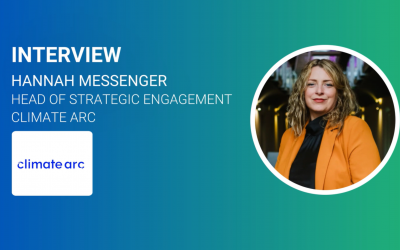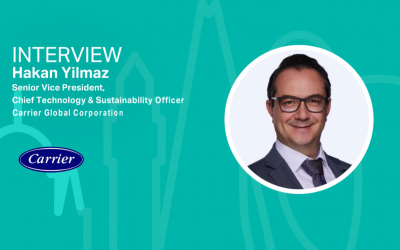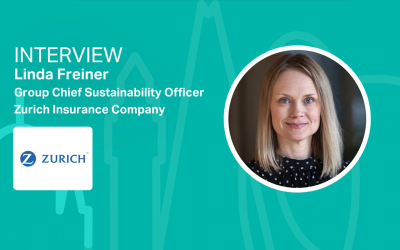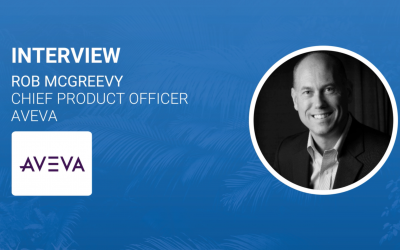Dennis Pamlin discusses the importance of the IPCC report for a zero-emissions future
Ahead of the Sustainable Innovation Forum taking place in Katowice, Poland on the 9th and 10th December, we caught up with Dennis Pamlin, Senior Advisor at RISE Research Institutes of Sweden, to discuss the importance of the IPCC report in providing solutions for a zero-emissions future.
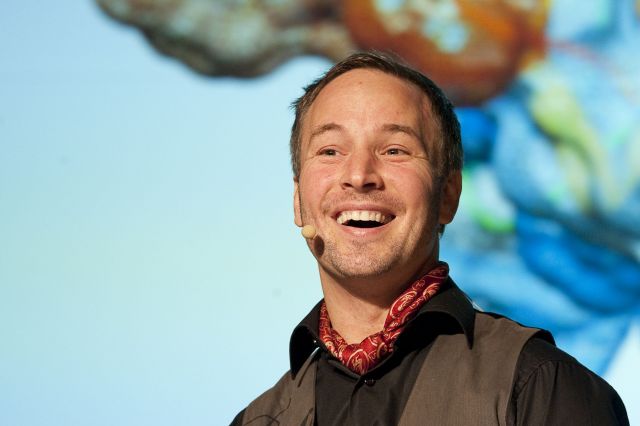
Ahead of the Sustainable Innovation Forum taking place in Katowice, Poland on the 9th and 10th December, we caught up with Dennis Pamlin, Senior Advisor at RISE Research Institutes of Sweden, to discuss the importance of the IPCC report in providing solutions for a zero-emissions future.
Let’s start with some background on RISE and your role there?’
RISE (Research Institutes of Sweden) aim is to be an internationally leading and innovation partner. We were created in 2017 by bringing together the different research institutes under one umbrella. Through international collaboration programmes with industry academia and the public sector we ensure the competitiveness of our partners in a global economy while contributing to a sustainable society. RISE is an independent State-owned research institute which offers unique expertise and over 100 testbeds and demonstration environments for future-proof technologies, products and services.
In my role as a senior advisor I focus on processes and initiatives where RISE unique strengths can help deliver significant global results. Mission Innovation, a global initiative to dramatically accelerate global clean energy innovation, is a perfect example of the kind of initiatives we are proud to be a part of. We are currently coordinating the work to develop Mission Innovation's solution framework for avoided emissions. A framework that we think will help accelerate the uptake of innovative zero-carbon solutions.
What has changed now IPCC have a 1.5C scenario and why is pathway 1 so important?
We now have a clear understanding of what is needed to stay below 1.5C. It is disruptive and beyond almost all current low-carbon initiatives. Many companies, policy makers and consultants have focused on win-win-win scenarios and on low-hanging fruits. IPCC show that many of these are part of the problem by resulting in a lock-in (i.e. initiatives that result in initial reductions but that make further reductions difficult/impossible). The IPCC report helps us focus on what is needed, solutions that can take us all the way to zero-emissions and fast.
Pathway 1 is perhaps the most important outcome from the IPCC 1.5C special report. For the first time, IPCC have included a scenario that focuses on what is needed in society and new smart solutions, rather than use models based on traditional slow supply side changes. By making such a shift towards smart solutions it becomes clear that fast reductions are possible. What is interesting is that the P1 also illustrates the limits of many of the favourite tools used by many groups working to reduce emissions, such as labelling, best in class, reporting scope 1-3 emissions can be part of the problem by encouraging mainly incremental improvements in existing systems rather than the system changes that are needed. They also tend to focus on the polluting companies, not the solution providers.
Why is it time to expand the focus on reducing emissions in existing companies to a focus on the solutions needed?
It is clear that we do need a way to measure positive impact and not just reduced risk. In this way, reduced carbon becomes an asset to investors and companies. Interestingly, some of the investor names at the forefront of sustainable investing are among those who have taken the longest to understand our solution approach because they think that their ESG strategies have already put them on the right track, while others – even some of the more controversial names out there – react by saying "finally, here's something focusing on what I really want to do – I want to invest not divest".
I'm definitely not saying that our framework and the green revenues approach should replace ESG strategies or that it's better than ESG. But you need both ways of thinking and they are very different – I would expect that our framework can be used by people in business development while ESG is often part of compliance or supply chain management.
In ESG, you tend to look at past sins and we think that you have to also look at future revenues in order to really drive change. ESG can take us from fossil fuelled cars to electric vehicles, but it's difficult to see how an ESG approach on its own can help us make the transition to things like car sharing and driverless cars, let alone smart city planning and walkable cities. For this to happen, you need to strategically look at the future and how we need to invest to build up the future we want – you need systems innovation.
What is the role for Mission Innovation's Avoided Emissions Framework (AEF)?
Business, and especially the financial sector, has long seen climate change almost exclusively as a risk where you need to reduce emissions to save costs, protect your brand with PR work, or divest certain investments to make an impact. This can be one part of the solution, but the strength of companies, including the financial sector, is its ability to provide goods and services as well as invest in what society needs. So we want to show how to measure the impact of companies as solution providers and financial stakeholders as investors in companies providing the solutions we need to reduce emissions and in doing so bring in more of a 'green revenues' focus into the debate. We should not forget that there are people out there who have adopted completely new ways of thinking and are already selling the solutions we need to avoid emissions. Those are the most important climate heroes and those we need in order to deliver the 1.5C target. Now is the time to identify them, support them and invest in them.
Our framework is meant to open new doors to investors and companies through which they can really quantify the good that they are doing now and can be doing in future. This can help trigger action on three levels. Firstly, we need to reframe the way investors think about climate change and approach it not just as a problem but instead find opportunities to make an impact. Then we can move to re-prioritising, which involves taking concrete steps towards supporting the right solutions. This can be done, for example, by linking the increased sales of solutions that help reduce emissions to the wider climate agenda. And then we want to accelerate the uptake of disruptive solutions that contribute to avoided emissions.
RISE/Mission Innovation is a Platinum Sponsor of the upcoming 9th Sustainable Innovation Forum taking place alongside COP24, 9-10 December in Katowice, Poland. To learn more about the agenda, the panels, the speakers and how to register, visit the event's official website here.

